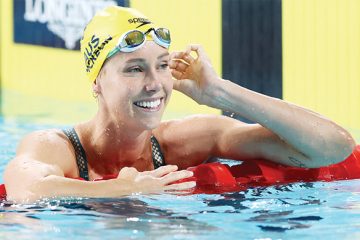In a cool summer evening on the 12th of August in London, Lord Sebastian Coe stood up to the podium facing 80,000 people and a TV audience of nearly a billion to whisper a simple phrase into the microphone.
“When our time came, we did it right,” said Coe and the words of the man tasked with the responsibility of hosting the 30th modern Olympiad and London’s third in just over a century, drew rapturous applause.
The applause was mostly because Coe was indeed right. London did “do it right” and a city tasked with hosting the largest sporting event in the world in these times of austerity managed to deliver with wit, panache and dexterity.
There were plenty of jitters and potential banana-skins.
From panicky predictions about transport failures to longish debates about budget allocations, the nervous Nellies were brushed aside all and sundry by the performances of a galaxy of stars including Usain Bolt, Michael Phelps, Yohan Blake, Jessica Ennis, Mohammad Farah, David Rudisha, Andy Murray and Sir Chris Hoy.
And as any great sporting event needs to be, London 2012 too was full of intricate storylines. There was the fall and rise of a champion as Phelps defended his juggernaut reputation in style, exiting London not just as the most successful individual (along with a certain Missy Franklin we will probably be hearing a lot about) but also as the most successful Olympian of all time.
But it was not only about champions; there was also a blind archer who broke a world record and a man without legs who made it to the finals of a 400-metre relay. And then, there was also the collective euphoria that carried Great Britain to exalted heights.
For once, the British had their own heroes, and ones who actually delivered.
Jessica Ennis won the heptathlon and the smiling Mohammad Farah sent the stadium into raptures. In the futuristic Velodrome, Victoria Pendleton and Chris Hoy shot them to new heights while in the leafy outdoors of Hyde Park, Alaistair Brownlee took human endurance to a new level.
The United States and China still finished first and second in the medal standings but “Team GB,” as it was hailed, finished third with 29 gold medals and 65 overall.
But if we are to look back and reminisce about London, then we need only to turn our attentions to one man who transformed what was an excellent Games into what will probably be remembered as a phenomenal one.
Sport needs characters and in Usain Bolt, track and field has found its very own Muhammad Ali. Indeed, Bolt possesses that unique mix of talent and charisma that makes one sit up and take notice and all of it was in full evidence during the whole of London 2012.
In London, Bolt participated for less than two minutes, 65.79 seconds to be pedantically exact. But it felt like the purpose of the entire Games was to build up to that particular denouement, to that particular moment when the giant Jamaican stood in the starters’ blocks for the 100-metre final, and leapt off the blocks in his hurtle towards immortality.
Bolt left London with three gold medals and a unique triple double, a feat unrivalled by any in history. He also left with the small matter of the tag of the fastest man in the planet.
But Bolt did not just take. He gave back too — in the means of a plethora of memories which those lucky enough to have witnessed will cherish forever. London 2012 will be synonymous with Usain Bolt forevermore.
-With The Daily Star input





